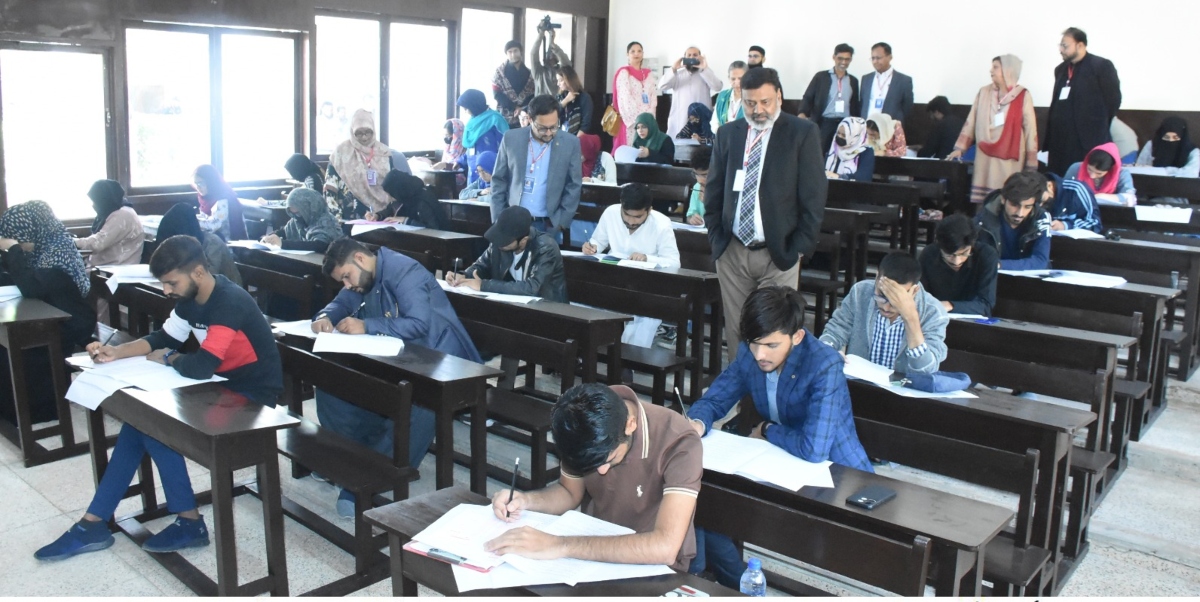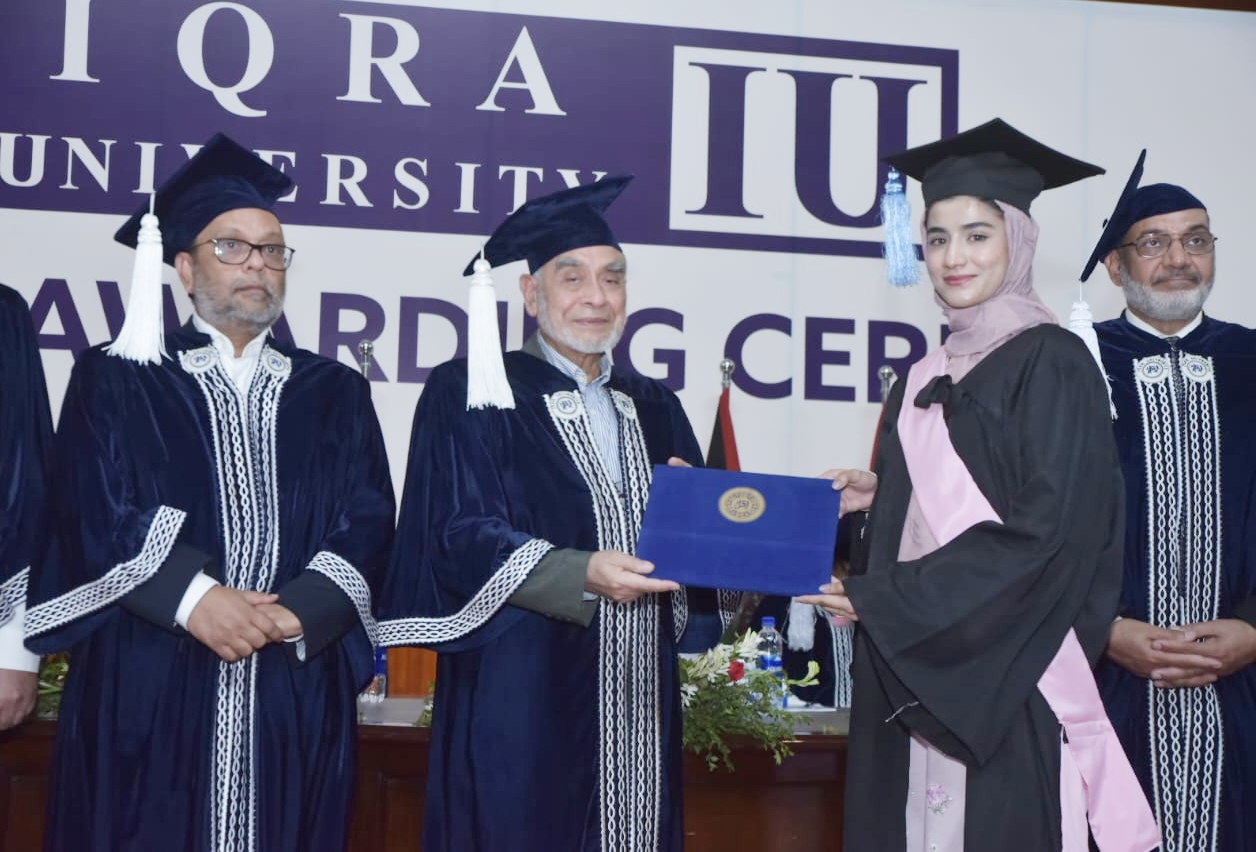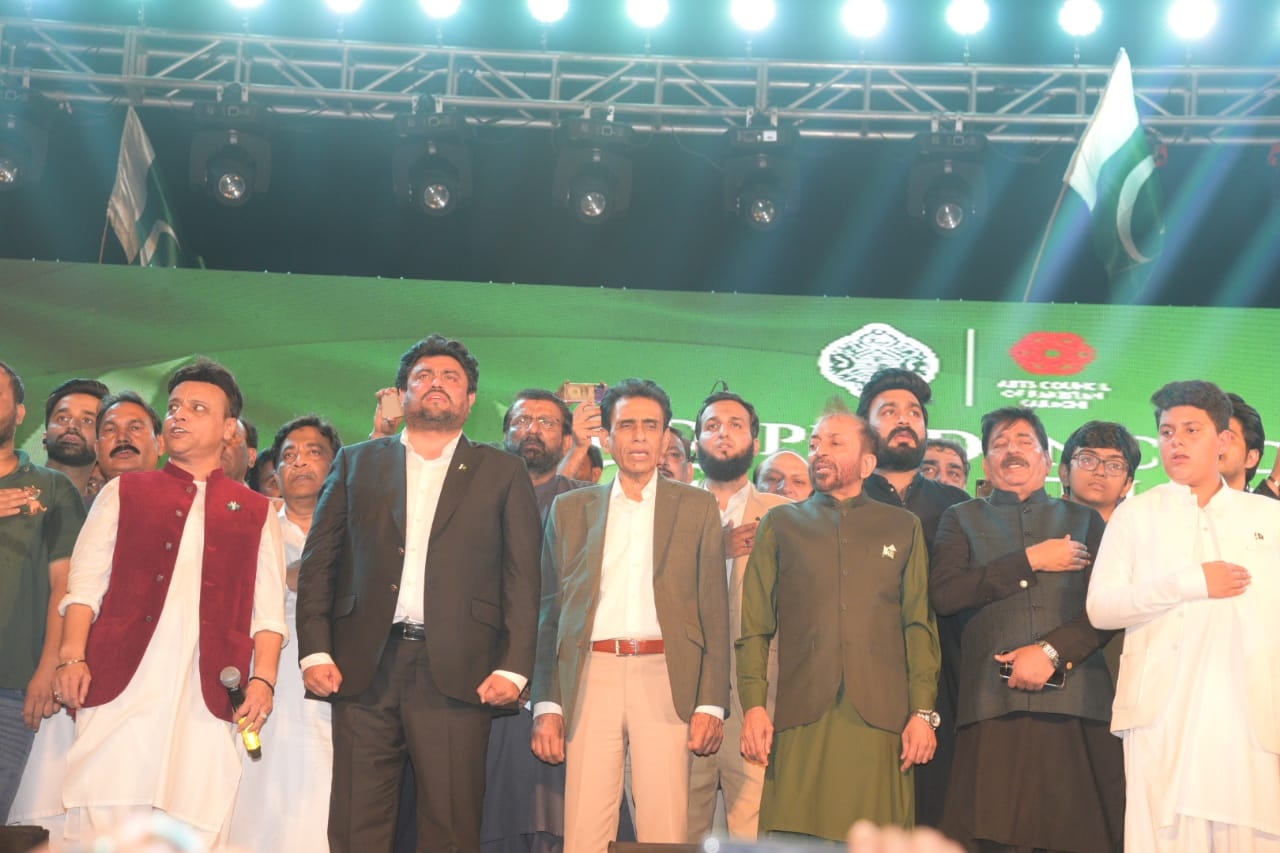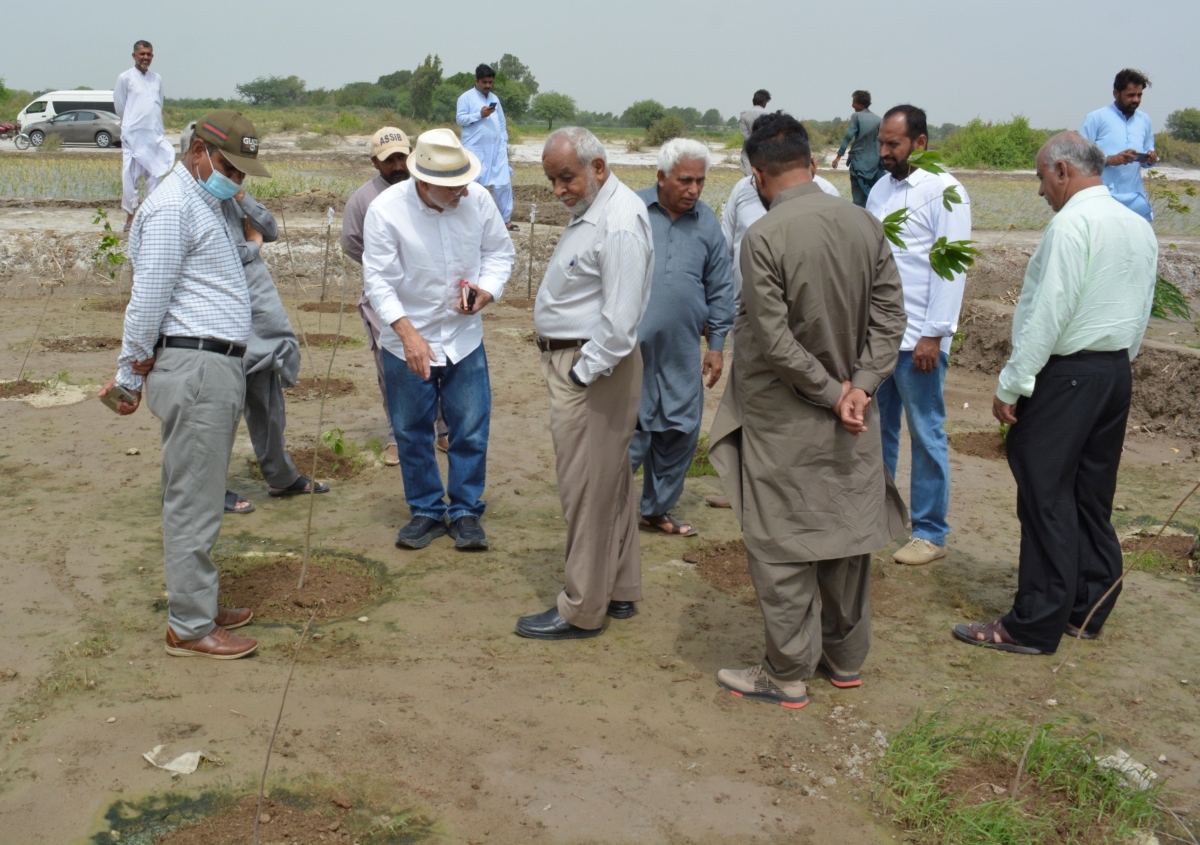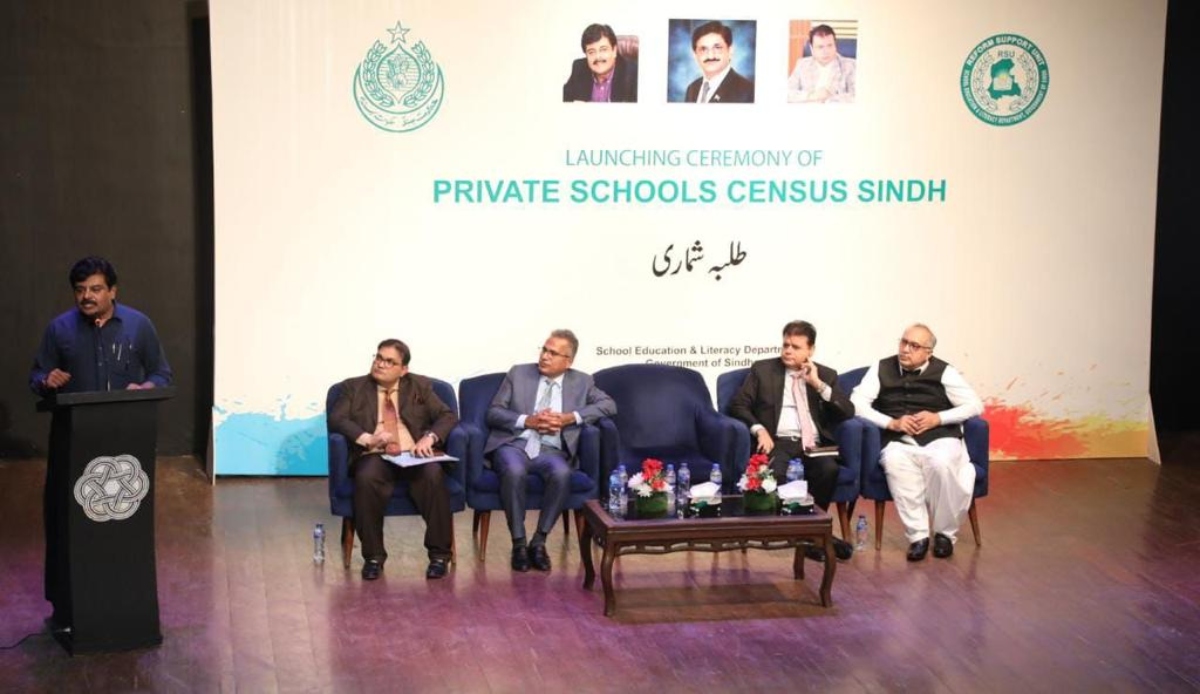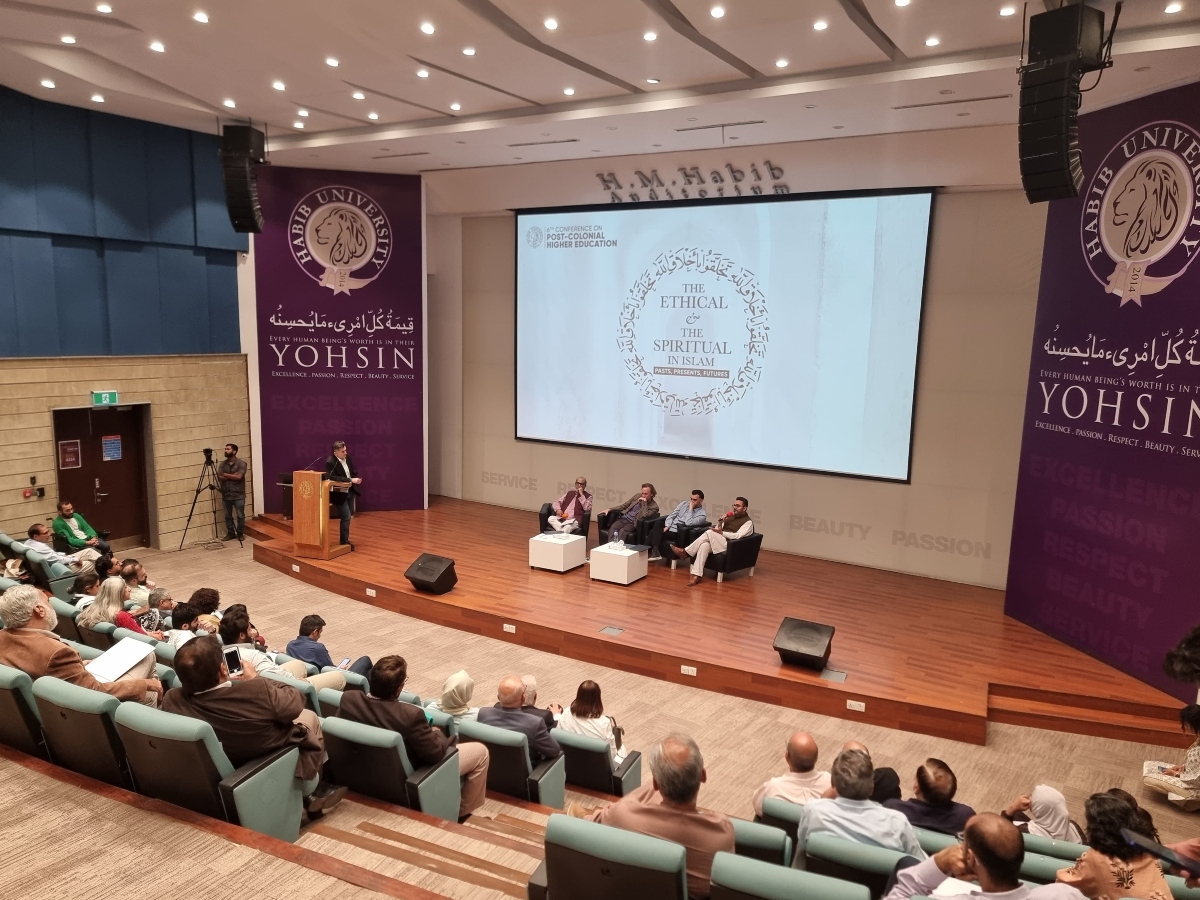
By Syed Wahaj Ahmed
Habib University’s sixth annual Postcolonial Higher Education Conference (PHEC) kicked off here on Friday under the central theme of “The Ethical and The Spiritual in Islam: Pasts, Presents, Futures”. The two-day event, renowned as a prominent platform for academic discourse, is dedicated to enriching scholarly conversations in a post-colonial context and strengthening global connections.
In line with Habib University’s tradition of fostering insightful discussions, this year’s PHEC aims to explore the essential conceptual and practical linkages between the ethical and spiritual dimensions in Islamic traditions.
Distinguished scholars, thinkers, activists, and writers from around the world convened at the university campus to share their work and reflect on the crisis, direction, and goals of higher education and culture in the present context.
In his introductory comments, Habib University Conference Chair Associate Professor of Comparative Humanities Dr Nauman Naqvi said: “One of the most important objectives of PHEC is to make reparations. It is imperative to enact post-colonial education within society so that we may recover and grow out of the fractures created by a colonial mindset.”
In the face of accelerated modern processes causing fragmentation and deformation of integrated dimensions of life, the conference addressed the increasingly alarming disintegration and distortion of linkages between “religion,” “ethics,” and “spirituality”. Recognizing these as modern categories, the conference sought to illuminate the consequences of global delinking and malformation of these integrated dimensions for thoughtful self-cultivation, impacting well-being, individually and collectively, across traditions and forms of life.
Dr Shenila Khoja-Moolji, Associate Professor of Muslim Societies at Georgetown University, explored how South Asian communal knowledge, including religion, underwent transformation due to colonial intrusion, leading to compromises in the virtue, intensity, and respect that are characteristics of Islam.
Despite these challenges, highlighted Dr Khoja-Moolji: “elements of beauty within our religion, and within ordinary ethics practiced by South Asian communities, continue to persist and are evident in everyday practices such as the concept of ‘khidmat,’ emphasizing good deeds as a form of prayer, and ‘mehmaan nawazi,’ the honor bestowed upon guests by hosts.”
The conference keynote was followed by a panel discussion titled “Spiritual Ethics Inside and Outside” featuring Ahab Bdaiwi, Assistant Professor of Islamic Thought and History at Leiden University, Alexander Key, Associate Professor of Comparative Literature at Stanford University, and Sajjad Rizvi, Professor of Islamic Intellectual History and Islamic Studies at the University of Exeter.
“We believe that thoughtful self-cultivation is crucial for individual and collective well-being, and the disintegration of linkages between “religion,” “ethics,”: and “spirituality” poses significant challenges,” underscored Professor Nauman Naqvi. “Through PHEC, we aim to contribute to repairing these linkages, particularly within the Islamic context, and envisioning a future where ethical and spiritual dimensions are integral to higher education and cultural discourse.”
About Habib University: Habib University is a premier institution of higher education in Pakistan, dedicated to cultivating critical thinking, interdisciplinary learning, and academic excellence. Established in 2010 and chartered as an independent university in 2012, the university is supported by the House of Habib. Located in Karachi on a 6.3-acre campus in Gulistan-e-Jauhar, the private liberal arts university offers undergraduate degrees in science, engineering, arts, humanities, and social sciences.

